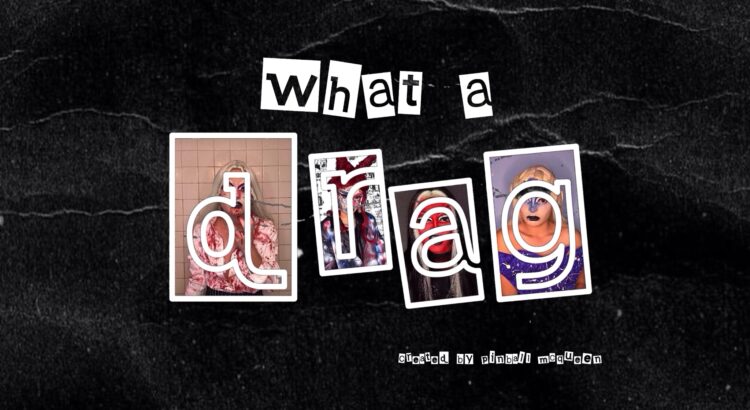I saw a post recently about how clowns have a union (which is true) and how strange that is, and how drag queens don’t have a union. I’m no expert on unions and economics, so I’m not going to try and sound smart talking about that here. But the connections between clowns and drag queens certainly interest me. I mean, what really is the difference between them? We both wear a ton of makeup, often try to look a bit ridiculous, and we’re both entertainers– just for slightly different age groups.

According to firsthand.co, the profession of clown is as follows: “Clowns dress in outlandish costumes, paint their faces, and use a variety of performance skills to entertain audiences. They work in circuses, amusement parks, schools, malls, rodeos, and hospitals, as well as on stage, in films, and even on the street. Clowns are actors and comedians whose job is to make people laugh.”
According to Wikipedia, drag queens are people who “use[] drag clothing and makeup to imitate and often exaggerate female gender signifiers and gender roles for entertainment purposes… People partake in the activity of doing drag for reasons ranging from self-expression to mainstream performance. Drag shows… occur at events like pride parades, carnivals, drag pageants, and in venues such as cabarets and nightclubs.”

Clearly, there are distinct differences here. But when it boils down to the details, there are a lot of similarities too. Drag queens and clowns work in a wide variety of different locations and events and utilize a variety of performance skills to entertain audiences. I’ve seen a drag queen fix a computer as part of her act before, so there’s really no performance skill that hasn’t been utilized as a part of a drag show. They both wear outlandish costumes and paint their faces, and as drag moves further and further away from regular gendered norms, outlandish and bizarre makeup is a more normalized part of what we expect with drag. Some queens even actively choose to paint more like clowns, myself included many times.

So then what really separates drag artists from clowns? Is it just because we don’t have to go to school for it? If I start making balloon animals, will I suddenly switch from being a drag artist to a clown?
I think what defines drag artists from clowns, or makeup artists or gogo dancers or burlesque performers or any of those other performer types is truly the artists themselves and what they make of their drag art. Drag is what you make it, it’s a performance of self-expression. There’s no real rules to drag, certain way things have to be done. It’s all up to the artist themself. Also, we don’t need degrees to do drag. Sorry clowns.

So it doesn’t matter if I’m dressing in a clown-themed drag look if I’m making balloon animals or riding a unicycle or pulling handkerchiefs out of my sleeve. I’m still a drag artist, I’m still doing my drag in my own expressionist way. But we still don’t have a union as drag artists. Maybe that is something that could happen in the future. Who knows!



Leave a Reply
1 Comment on "Clowns Have a Union (and I Think That’s Neat)"
Never really thought of this correlation before- Clowns and Drag Queens. Makes me think about what the motivation is behind either. What is in us as humans that compels us to dress up in these fantastical outfits as entertainment… I suppose it’s about altering the way we interact with the world– sort of a magical transformation.